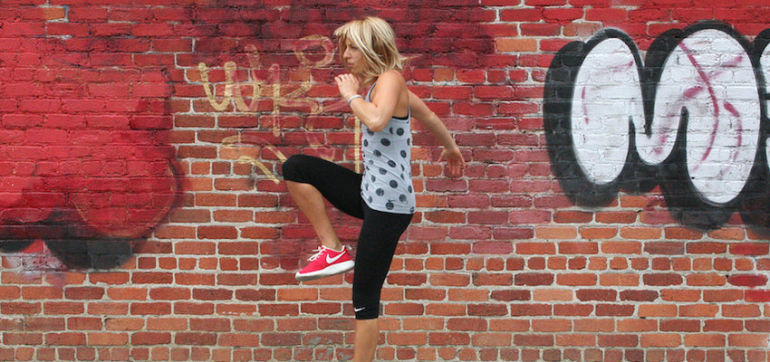How Sleep Affects Sports Performance
 Everyone knows how important it is to get adequate amounts of sleep, especially before and after exercise or working out.
Everyone knows how important it is to get adequate amounts of sleep, especially before and after exercise or working out.
If we don’t get enough sleep we will likely feel cranky and lethargic the next day, find it difficult to function and our performance will be compromised.
Studies have shown that sleep regulates our mood and affects our ability to learn new skills and improve our performance on tests. It is also affects our health, weight and energy levels.
Although exercise is a good thing, working out just before bedtime is not a good idea because it can lead to insomnia. Our body temperature rises when we exercise and it can take up to six hours to drop. After working out, our bodies need to cool down; and cooler body temperatures are associated with the onset of sleep. It’s, therefore, important to stop working out at least three hours before bedtime. In fact, experts suggest that the best time for exercise or working out is in the late afternoon.
Sports Performance
Two studies led by Cheri D. Mah, MS, researcher at the Stanford Sleep Disorders Clinic and Research Laboratory in Stanford, CA, concluded that optimal sleep is necessary to attain peak athletic performance and that extra sleep improves sports performance and mood.
In one study, published in the July 2011 issue of the journal SLEEP, 11 healthy students on the Stanford University men’s varsity basketball team were asked to sleep a minimum of 10 hours a night for a period of 5 to 7 weeks. Their athletic performance was then measured after every practice.
Researchers found that the basketball players were able to improve their performance, plus their reaction time and mood, by increasing the amount of time they slept. They demonstrated faster sprint times and improved shooting accuracy; increased vigour and decreased fatigue; and also reported improved physical and mental well-being during practices and games.
The second study, published in June 2009, monitored five members of the Stanford Women’s tennis team. For the first 2 to 3 weeks of the study, the women maintained their regular sleep/wake patterns and their athletic performance was assessed. Then, for 5-6 weeks, they extended their sleep, aiming for 10 hours a night. Mood and daytime sleepiness were monitored, along with daily sleep/wake activities. According to the study abstract on eurekalert.org, Mah found that many of the study participants realized, for the first time, how important sleep was and how it impacted their performance during competitions.
According to a July 1, 2011, Science Daily report, Mah offers the following tips to athletes. But they can apply, equally, to any of us when we are exercising or working out:
1. Prioritize sleep as a part of your regular training, workout or exercise regimen.
2. Get more sleep for several weeks prior to a competition.
3. Adults need seven to nine hours of sleep a night; while teens and young adults need nine or more.
4. Keep a regular sleep-wake schedule by going to bed and waking up at the same time every day.
5. Take brief 20- to 30-minute cat naps during the day, especially if you are feeling drowsy.
When we are working out or engaged in exercise, inadequate sleep can also increase our susceptibility to injury.
According to the Cory Holly Institute, an online international sports nutrition education center, sleep is essential for proper coordination and motor dexterity when we are exercising or working out. When we are sleep deprived while working out or during a game, we can collide with stationary objects and/or our opponents.
In a November 2011 Psychology Today article, Matthew J. Edlund, M.D. says some sports teams have hired sleep doctors. The NBA consults with Dr. Charles Czeisler, head of sleep medicine at Harvard, who recommends players get more than 8 hours of sleep a night for optimal performance.
Edlund says athletes who’ve had proper rest show better muscle and pulmonary function; they learn better and have better memories; they’re calmer and more aware of their own bodies and those of their teammates; and they’re more capable of recognizing an injury.
So, whether you’re a competitive athlete or just someone who exercises every day and enjoys working out, remember: rest and recovery are critical.
-
What Is The Most Popular Kind Of Weight Loss Surgery?
Today, obesity has become a serious health problem impacting millions
-
3 Prescription Drugs That May Cause Weight Gain
Prescription drugs may trigger weight gain. This is especially frustra
-
Low Calorie Salad Recipes - 6 Healthy Salad Recipes For Weight Loss
What is better than snacking on a salad?
-
Stomach bloated? Try these 10 tips…
We’ve all experienced it at some point in our lives, whether w
-
Losing Obesity Weight Quickly and Healthily
Losing obesity weight requires longterm changes in diet and exercise
-
Set Realistic Weight Loss Goals
How much weight do you want to lose? Are you being realistic about ho
- DON'T MISS
- Body Acceptance The Secret To Weight Loss Success
- Take Charge of Your Weight: Give Up versus Take Charge Talk
- How 40,000 People Reverse Heart Disease
- Why We Need To Keep A Daily Food Log
- Big Buts Sabotage Weight Loss Health And Fitness Part 9 Of 12
- Weight loss meal plans for women
- Losing Weight While Helping Your Baby Nap Longer
- A few Fundamental Principles With regard to Women’s Weight Loss
- Importance of Self Motivation for Weight Loss
- Fitness and Weight Management Programs!




